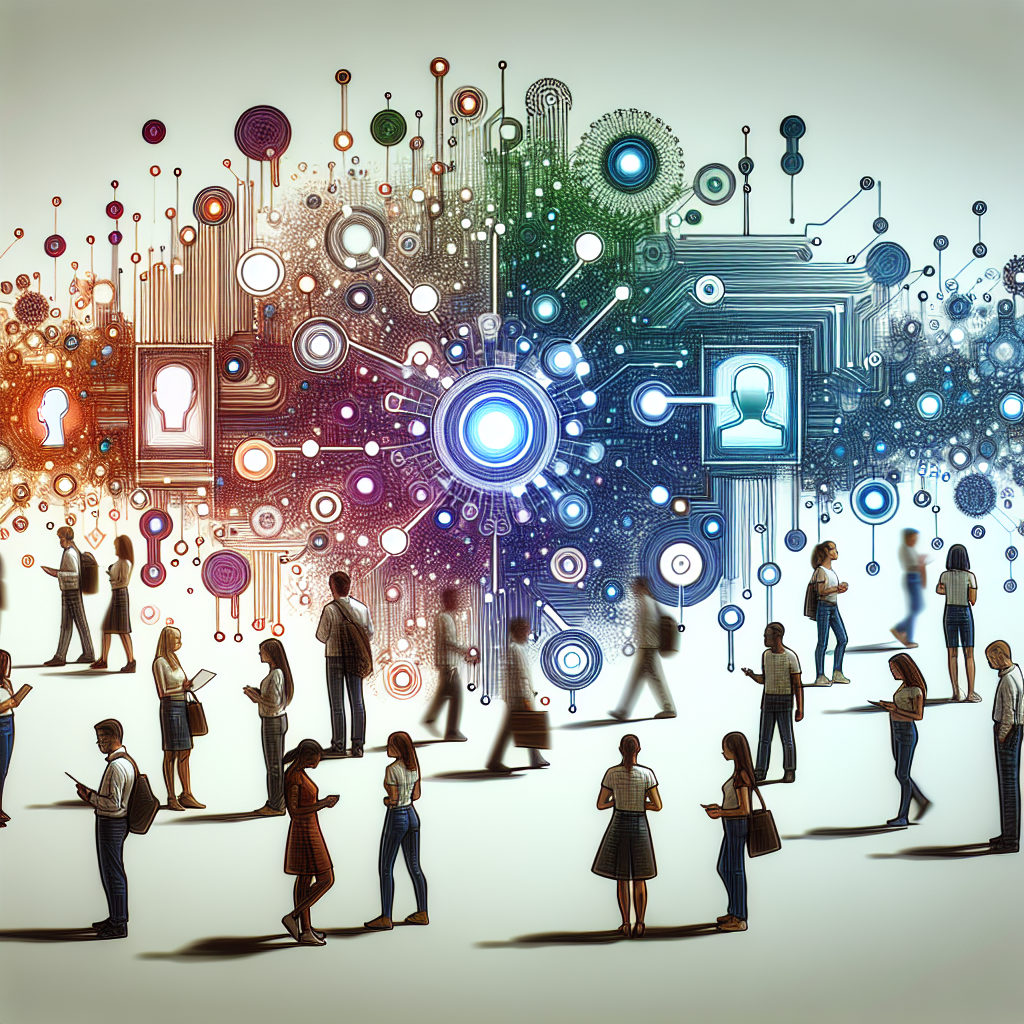Artificial Intelligence (AI) has revolutionized the way we live, work, and communicate. From virtual assistants like Siri and Alexa to self-driving cars and personalized recommendations on social media, AI is becoming increasingly integrated into our daily lives. While AI offers many benefits, such as improved efficiency and convenience, it also poses social risks that can impact our relationships and communication.
One of the primary social risks of AI is the potential for job displacement. As AI technology continues to advance, there is a growing concern that automation will replace human workers in various industries. This could lead to widespread unemployment and economic instability, which in turn can strain relationships and communication within communities and families. People who lose their jobs due to AI may experience feelings of inadequacy or worthlessness, which can negatively impact their self-esteem and relationships with others.
Another social risk of AI is the potential for increased isolation and loneliness. As AI technology becomes more sophisticated, there is a concern that people may rely too heavily on virtual interactions and neglect real-life relationships. For example, the rise of social media and online dating apps has made it easier for people to connect with others online, but this can also lead to a lack of meaningful face-to-face interactions. This can result in feelings of loneliness and disconnection, which can strain relationships and communication with friends and family members.
Additionally, AI technology has the potential to perpetuate biases and discrimination in society. AI algorithms are often trained on historical data, which can reflect existing biases and prejudices. For example, AI used in hiring processes may unintentionally favor certain demographics over others, leading to discrimination in the workplace. This can create tension and conflict among employees, as well as damage trust and communication within organizations.
Furthermore, the use of AI in surveillance and monitoring can also infringe on privacy rights and erode trust in relationships. For example, facial recognition technology used by law enforcement agencies can lead to concerns about mass surveillance and the violation of civil liberties. This can create a sense of mistrust and suspicion among individuals, as well as hinder open communication and collaboration within communities.
In order to address these social risks of AI, it is important for policymakers, businesses, and individuals to take proactive measures to mitigate the negative impacts of AI on relationships and communication. This includes implementing ethical guidelines and regulations to ensure that AI is used responsibly and ethically, as well as promoting transparency and accountability in the development and deployment of AI technologies.
Additionally, fostering digital literacy and promoting critical thinking skills can help individuals navigate the complexities of AI and make informed decisions about their use of technology. By being mindful of the social risks of AI and taking steps to address them, we can ensure that AI enhances, rather than hinders, our relationships and communication with others.
FAQs:
Q: How can individuals protect their privacy in the age of AI?
A: Individuals can protect their privacy by being mindful of the information they share online, using privacy settings on social media platforms, and being cautious about the apps and websites they use. It is also important to stay informed about data privacy laws and regulations, and to advocate for stronger protections of personal data.
Q: What role can businesses play in addressing the social risks of AI?
A: Businesses can play a critical role in addressing the social risks of AI by prioritizing ethical considerations in the development and deployment of AI technologies. This includes conducting regular audits of AI systems to identify and address biases, as well as being transparent about how AI is used and the data it collects.
Q: How can policymakers regulate AI to protect against discrimination and bias?
A: Policymakers can regulate AI by implementing laws and regulations that address issues of bias and discrimination in AI systems. This may include requiring companies to conduct bias audits of their AI technology, as well as ensuring that AI algorithms are transparent and accountable to prevent discriminatory outcomes.

